May 28, 2025 | 15:00 GMT +7
May 28, 2025 | 15:00 GMT +7
Hotline: 0913.378.918
May 28, 2025 | 15:00 GMT +7
Hotline: 0913.378.918
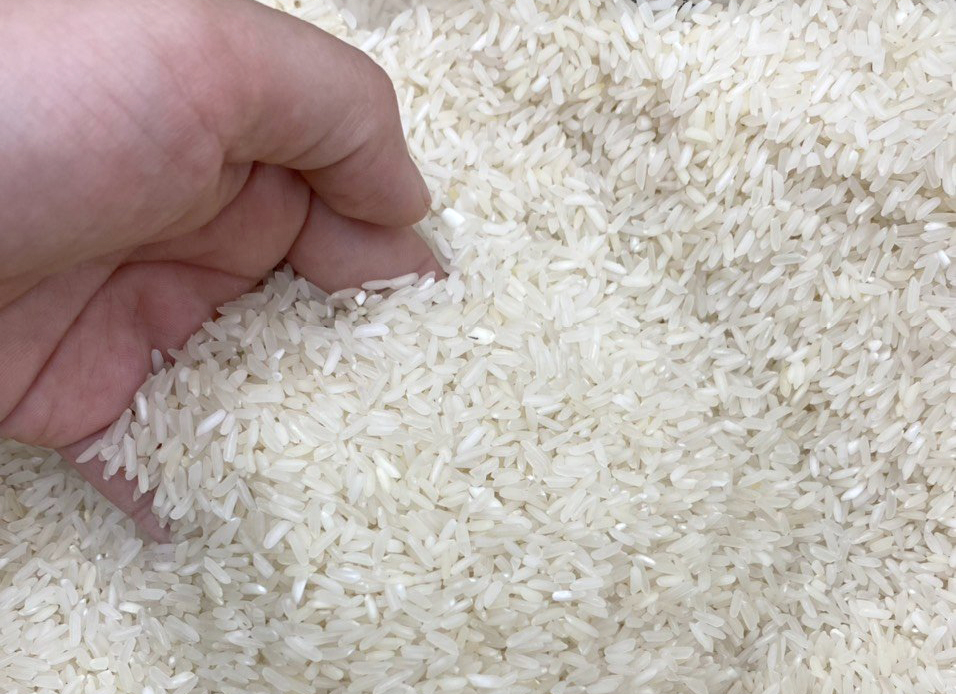
Vietnamese rice imports into the UK are increasing rapidly. Photo: Son Trang.
According to the Vietnam Trade Office in England, there is a significant demand for rice exports to the UK due to the presence of around 5.5 million people of Asian origin living there. In 2022, the UK imported over 678,000 tons of rice valued at over $603 million, marking a 4.1% increase in quantity and a 7% increase in value compared to 2021. Statista (a German market research company) forecasts a 2.1% growth in the rice market in the UK by 2024.
Vietnam is currently not a major player sourcing for the UK market, but the quantity and value of rice imports from Vietnam are growing rapidly. In 2022, 3,400 tons of Vietnamese rice were imported into the UK, valued at over 3.7 million USD, representing a 24.5% increase in quantity and a 34% increase in value compared to 2021. Vietnam currently ranks 14th among rice suppliers to the UK, with a market share of 0.6%. Although modest, this market share has significantly improved from the 0.24% level in 2019. The import of fragrant Vietnamese rice into the UK under the UK Free Trade Agreement (UKVFTA), which exempts it from import duties, is playing a significant role in promoting Vietnamese rice imports into this market.
Imported Vietnamese rice in the UK mainly serves the needs of the Vietnamese community and partly the Chinese, Thai, Malaysian, and Filipino communities, retailing in supermarkets at prices ranging from 2 to 2.5 GBP per kg (58,000 - 72,000 VND per kg).
Similar to rice from many other countries, Vietnamese rice exported to the UK is usually sold under the branding of distributors. Such distribution through different middlemen can easily make it difficult for consumers to identify the origin of the rice from Vietnam.
Vietnamese rice sold in the UK under popular brands includes Golden Lotus Premium Jasmine Rice, Longdan Premium Rice, Longdan Jasmine Broken Rice (available at Longdan supermarkets); Buffalo Saigon Fragrant Rice, Buffalo Brand Northern Vietnam Glutinous Rice (available at Tradewind); ST25 Super Fragrant Rice (available at OFD supermarkets).
Also according to the Vietnam Trade Office in England, in the second half of 2023, the UK market may face supply shortages due to India's export ban. India is currently the largest rice supplier to the UK market, holding a 27% market share. Therefore, India's ban on exporting non-Basmati rice is expected to lead to a shortage of approximately 75,000 tons of rice in the UK market. As of now, the UK government has not yet responded with a trade policy regarding rice after India's export ban on non-Basmati rice.
Therefore, the Office suggests that India's ban on exporting non-Basmati rice will create a market opportunity in the UK for alternative suppliers, including Vietnam.
This strategic move by India inadvertently paves the way for diverse suppliers, with Vietnam positioned as a promising contender, to step into the void created by this trade restriction. This development holds significant implications for the rice trade dynamics, particularly within the UK, and underscores the potential for alternative sources to capitalize on the supply gap that has emerged due to India's export limitations. As the global trade landscape continues to evolve and adapt to shifting circumstances, such market fluctuations can potentially herald novel prospects for rice-exporting countries like Vietnam.
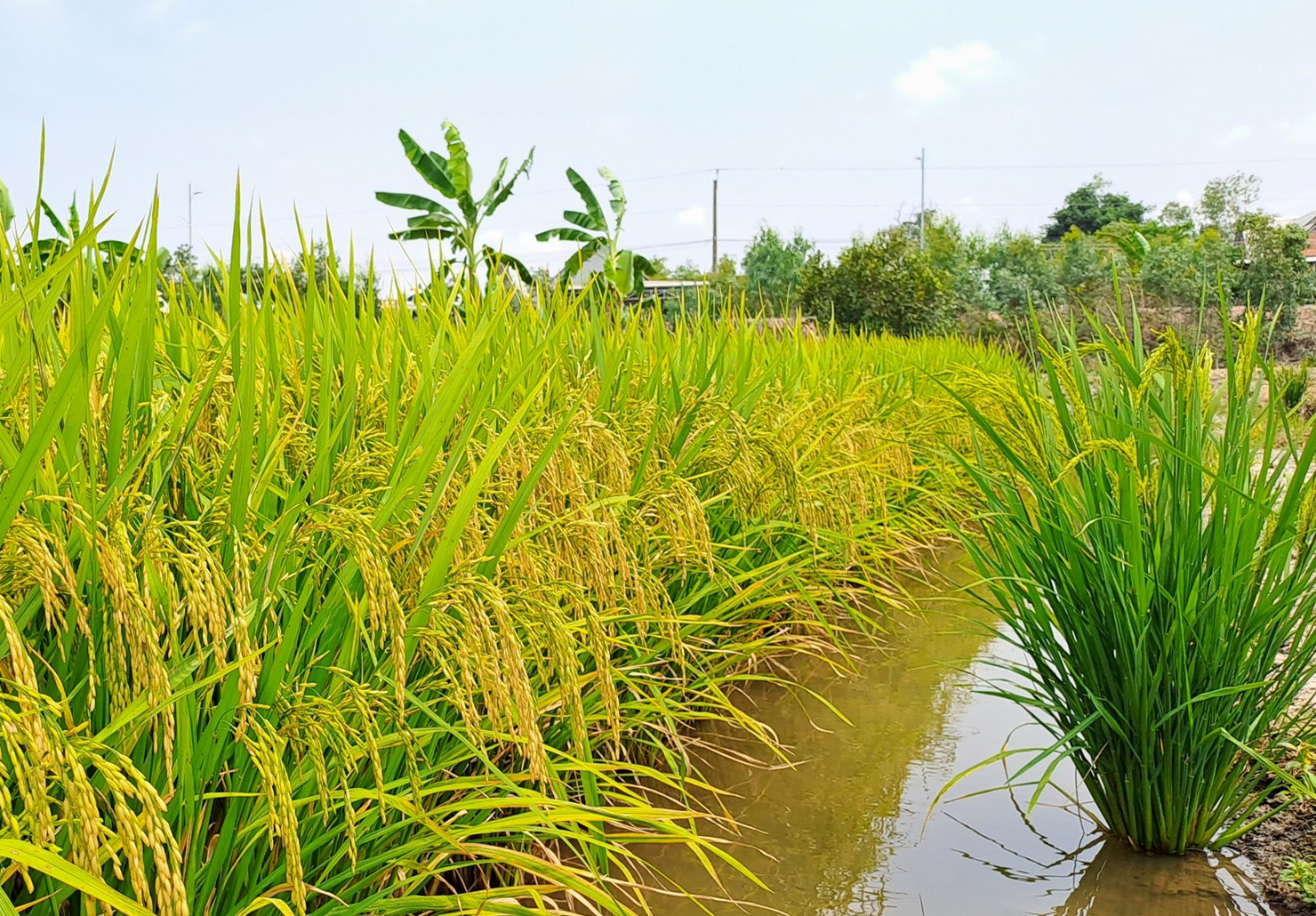
A ripe rice paddy in Long An. Photo: Son Trang.
However, to fully capitalize on this opportunity, the Vietnam Trade Office has recommended that the Ministry of Industry and Trade encourage rice exporting businesses to sign long-term supply contracts based on a balance between domestic food security and export demand. They have also suggested that the State Bank of Vietnam consider increasing credit for businesses purchasing rice crops for export.
In addition, it is also recommended that the Ministry of Agriculture and Rural Development support farmers in expanding the cultivation of rice using GlobalGAP standards, and promote the production of high-quality fragrant rice to enhance rice exports to demanding markets, including the United Kingdom.
At the same time, the Vietnamese rice industry needs a strategy to build and promote the Vietnamese rice brand in the UK market. Mr. Nguyen Canh Cuong, Commercial Counselor of Vietnam in the UK, believes that if actively and professionally marketed, including promotion through English-language media in the UK, Vietnamese rice exporters will undoubtedly increase their market share in the UK. This includes targeting segments such as Asian tourist-serving restaurants, which make up a significant portion of the millions of tourists visiting the country annually.
Translated by Nguyen Hai Long

(VAN) With rising demand in Muslim-majority countries, Halal certification is becoming a critical passport for Vietnamese agricultural products seeking sustainable market access and consumer trust in the Middle East and Africa.

(VAN) Vietnam’s fruit and vegetable exports to the U.S. are rising sharply, and exporters are hoping that any upcoming reciprocal tariffs will be set at manageable levels.
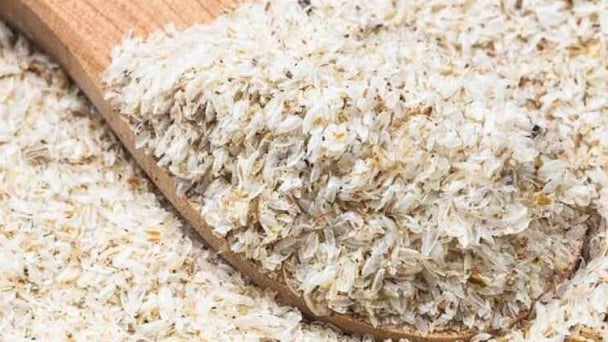
(VAN) Despite meeting quality standards, Vietnamese rice bran exporters still face difficulties with administrative procedures under the new protocol.
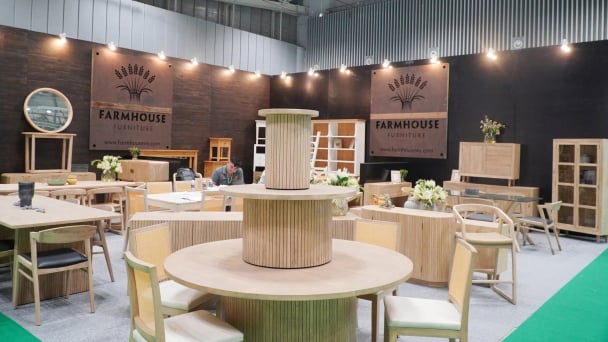
(VAN) The U.S. is tightening import tariffs and origin inspections, requiring Vietnamese businesses to proactively prepare in terms of legal compliance, supply chains, and appropriate export strategies.

(VAN) Russia more than doubled halal poultry exports in 2024, aiming to further boost sales by the end of the decade.

(VAN) Amidst the current intense competition, businesses must establish sustainable linkages, prioritize technological investments, build brand identity, and obtain international certifications.
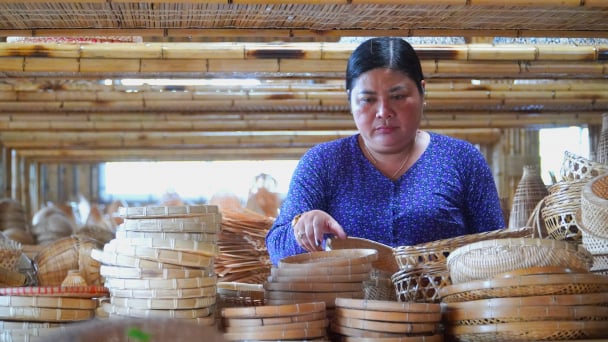
(VAN) As director of the Thuy Tuyet Bamboo and Rattan Handicraft Cooperative in Soc Trang, she has revitalized a traditional craft, generating sustainable livelihoods for hundreds of workers - particularly from the Khmer ethnic minority.